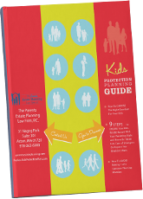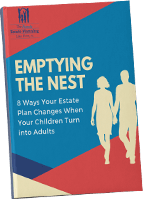Back in January, my wife, Paula wrote about my holiday adventure with the emergency room (ER.) In response to that email, I received an outpouring of ‘get well’ wishes from concerned clients. When I started this firm (20 years ago this year,) I wanted to build a firm that valued client relationships, one where I would not only be a valuable resource to my clients, but someone to whom my clients could turn in times of crisis. I never imagined that I would be on the receiving end of that concern. I want to thank you for your thoughtful emails and phone calls. It meant a lot.
Paula and I learned a lot from this experience – and so I’d like to share with you some thoughts about what this experience has taught us.
Background:
Starting in early November, I experienced a series of cascading health issues that continued well into December. On December 22nd, I developed persistent symptoms of what I later learned was severe colitis. Two days in, Paula suggested that I got to the ER. By day five, she insisted, telling me in no uncertain terms to “get dressed, you’re going to the [deleted] emergency room.”
I spent the Wednesday after Christmas in the ER, doctors testing me for an assumed bacterial infection. Test results returned negative, and with my symptoms not abating, we returned to the ER on Friday. From there, I was admitted directly into the hospital for further evaluation. I stayed for five days and was discharged on January 2nd with a preliminary diagnosis of moderate to severe ulcerative colitis. I lost 24 lbs. over the course of two weeks.
Lessons Learned:
#1 – If You Own Your Own Business, Hire A Great Team
During my illness, Paula and I were away from the office with essentially no contact for almost 10 days. We have a great team in place – they continued to run the firm and meet with clients, and they continued to keep things moving forward while I maintained a severely modified return-to-work schedule through early February.
#2 – Listen to Your Spouse When She Says You Need to go to the ER
Just listen to your spouse/partner/significant other in general. They can see things about you that you cannot (or are just too stubborn to admit).
#3 – Pay Attention to Your Health
Enough said. Listen to your body. As I discovered, if something doesn’t seem right, it probably isn’t, and is not something with which to be messed. While in the hospital, I learned that bacterial colitis can go bad quickly, resulting either in the removal of your colon (best case) or sepsis (worst case). Thankfully, neither happened to me.
#4 – Get Your Emergency/Estate Plan in Place
I may be biased, but still – do this. Do it now. Start today, tonight at the latest. Not because you will die anytime soon (although you might and you should have a rock solid, comprehensive plan in place for your family and your business – if you own one – in case you do,) but because it is statistically more likely that you will become incapacitated and need someone to make health care, legal, or financial decisions for you. At the very least, make sure you have a health care proxy, HIPAA authorization, and durable power of attorney in place. You should also have a will, and probably a trust, and, if you have kids, a short-term and long-term guardianship plan.
If you are already a client of our firm, share #4 with the friends and family you know, love, and care about. They will be grateful that you did.
#5 – And They Lived Long, Happy, Healthy Lives Together.
So far, so good. I am taking a new medicine that has my condition under control. Most of my weight is back (less the part I didn’t need back). My energy is definitely back. And Paula and I are enjoying being back at work and meeting and serving all of you.
Thank you again for your thoughts and genuine concern.
Be well,
David Feakes
P.S. Want to get started on the most important planning you’ll ever do for your family? Give our office a call at (978) 263-6900 to get started. You’ll be so glad you did.
David Feakes is the owner of The Parents Estate Planning Law Firm, PC – a law firm for families in the Acton, Massachusetts area. David helps parents protect the people they love the most.
Click here to read about this from Paula’s perspective, “Learning from our Crisis: An Estate Planner in the ER,”.












